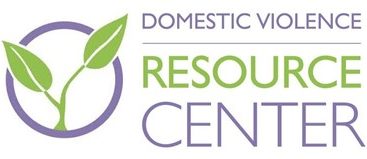 DVRC provides free and confidential advocacy services to survivors of domestic violence in Washington County. Advocacy services include on-site filing assistance for protective orders, safety planning, case management, resource referrals, application assistance with the Address Confidentiality Program, court/virtual court accompaniment, culturally specific services, and more.
DVRC provides free and confidential advocacy services to survivors of domestic violence in Washington County. Advocacy services include on-site filing assistance for protective orders, safety planning, case management, resource referrals, application assistance with the Address Confidentiality Program, court/virtual court accompaniment, culturally specific services, and more.
To speak with a DVRC Advocate, call (503)640-5352 ext. 604.
Safety Planning
Creating a safety plan is integral to maintaining a survivor’s safety and security. Safety planning is identifying safety concerns that exist and problem solving to remove or reduce the risk of harm. Having a safety plan allows survivors to react quickly during high stress dangerous situations as a plan of action has already been created. Common components of a safety plan are hanging locks, obtaining mace or pepper spray, obtaining a restraining order, creating an overnight bag that can be taken at a moment’s notice, and creating plans to stay with friends or family in cases of emergency. Advocates are available in person and over the phone to assist survivors with safety planning.
Protective Orders and Court Advocacy
Obtaining a protective order can be an important part of creating a safety plan. While advocates are unable to give legal advice, they can answer basic questions regarding the protective order process and help compete paperwork associated with protective orders including the initial petition, modifications, renewals, and dismissals. Throughout this process advocates are also available to accompany survivors to any court appearances associated with the protective order as well as divorce, custody and criminal hearings if availability allows. To download and print the most current versions of protective orders, please visit the Oregon Judicial Department family law website. Click here to download a PDF with more information about protective orders from the Victims Rights Law Center. To contact a protective order advocate please send an e-mail to advocacy@dvrc-or.org. A few important things to keep in mind regarding court are:
- Children are not allowed in the courtroom.
- Open toed shoes, shorts and hats are not allowed in the courtroom.
- If you wish to file a petition for a restraining order you must be at our office by 9:00 AM.
- Stalking Orders are done only on Monday, Wednesday, and Friday and DVRC can only assist petitioners who are filing against an intimate partner or former intimate partner. All other orders are done Monday-Friday. DVRC is closed on all federal holidays.
The following videos offer pertinent and helpful information presented by Washington County Domestic Relations Judge Keith Raines:
- Obtaining a Temporary Restraining Order in Washington County, Oregon
- Preparing for Your Contested Protective Order Hearing in Washington County, Oregon
- Obtener una Orden de Restricción Temporal en el Condado de Washington, Oregon
- La Audiencia para Disputar una Orden de Restricción en el Condado de Washington County, Oregon
SAWERA
The SAWERA program provides culturally responsive and relevant services to South Asian survivors of domestic violence including crisis response, safety planning, ongoing emotional support, protective orders, court accompaniment, assistance with public benefits and welfare agencies, connections to counseling and legal resources, information, referrals, and shelter. SAWERA survivors often have difficulty leaving abusive partners due to traditional gender roles and cultural impediments and need support with language barriers, immigration issues, navigating the system and accessing resources. DVRC’s SAWERA Advocate can meet in public places as we understand that sometimes folks in this community may have limited mobility. The SAWERA program encourages economic and emotional empowerment in survivors so that they can become self-sufficient and live a violence free life. DVRC services are free, confidential, and participation is completely voluntary. To contact the SAWERA Advocate, please e-mail geetanjalip@dvrc-or.org.
Latine
The Latine program provides services to self-identified Latine and Spanish speaking survivors of domestic violence. DVRC’s Latine program takes into account Latine cultural context by addressing the experience, reality, and consciousness of people who are Latine. The Latine Advocate understands that cultural factors such as place of birth, age of immigration, education, ability to speak English, traditions, and cultural celebrations play a large role in a person’s ability to leave an abusive relationship and fully understands the importance of both the nuclear and extended family in making decisions about a person’s own relationship. The Latine program provides case management to survivors which includes, navigating the civil and criminal justice systems, information about their rights and legal options, referrals and resources to other community partners/agencies, and safety planning. The Latine program also does significant community outreach & education among the Latine community regarding dynamics of domestic violence and its effects on children. To contact the Latine Advocate, please e-mail rocio@dvrc-or.org.
LGBTQ+
The LGBTQ+ program provides services specific to people who identify as LGBTQ+ or any other person who belongs to a marginalized community based on their gender or sexual orientation. An important aspect of this program is an LGBTQ+ identified advocate providing services. This advocate understands the barriers that exist specifically for this population such as risk of being outed, remaining in contact with abuser because of limited LGBTQ+ spaces, and complications involving adoption. The LGBTQ+ advocate has also identified medical and legal resources that are specific to barriers people who are LGBTQ+ can face, as well as resources to help with basic need fulfillment, such as food and clothing that are LGBTQ+ friendly and welcoming. The LGBTQ+ program also keeps all advocates up to date on issues relevant to the LGBTQ+ community and understands the intricacies between sex, gender, sexual orientation, and gender expression. DVRC supports every person’s right to identify as the gender and sexual orientation that they are most comfortable with. To contact the LGBTQ advocate, please e-mail advocacy@dvrc-or.org.
Department of Human Services Co-Located Advocacy
Through our partnership with the Department of Human Services (DHS), DVRC staff work out of three local DHS offices in Hillsboro, Beaverton, and Tigard. These advocates assist people navigating the DHS process, as well as provide case management, safety planning, resource referrals, and other services. To contact the advocate located in Hillsboro please e-mail Faith at faith@dvrc-or.org, for Beaverton please e-mail Oliver at oliver@dvrc-or.org, and for Tigard please e-mail Yvonne at yvonne@dvrc-or.org.
